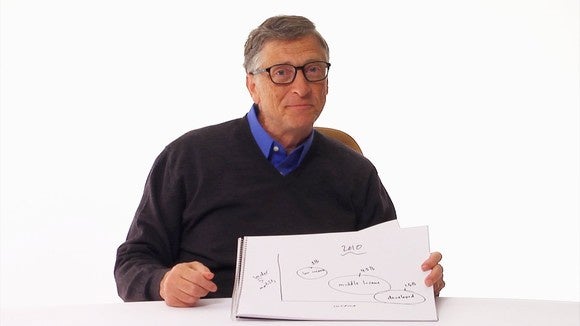
Gates appears to have made the case, however, that he is in favor of the government’s request because he feels it is narrowly worded.
“This is a specific case where the government is asking for access to information,” Gatestold the Financial Times in a story published Monday night Pacific time. “They are not asking for some general thing; they are asking for a particular case.”
“It is no different than [the question of] should anybody ever have been able to tell thephone company to get information, should anybody be able to get at bank records,” Gates added.
Why this matters: The issue concerns data stored on the iPhone which may or may not have national security implications. The FBI originally confiscated an Apple iPhone 5cissued to San Bernardino shooter Syed Rizwan Farook by his employer, the San Bernardino County Department of Public Health. The FBI then asked the government for an order compelling Apple to defeat the hardware safeguards it built into the iPhone by sideloading code that would remove those safeguards and allow the government to decode the PIN protecting the data by brute force. Otherwise, the iPhone could automatically delete all data on the phone after 10 incorrect passcode attempts.
Set for a showdown
Apple has refused, however, and has said that the case involves the “freedom and liberties” of its customers. It has asked the government to form a commission to decide the matter. Legally, the issue is set to come to a head in March, when lawyers from both sides present their arguments.
Gates is on the side of most Americans, who apparently side with the government against Apple’s position. However, Facebook chief executive Mark Zuckerberg, along with Google executive Sundar Pichai and Twitter CEO Jack Dorsey, have all come out in favor of Apple, and consumer privacy.
Gates told the FT, however, that he encouraged a “debate” so that citizens of individual countries did not feel that they would be forced to restrict the government’s access to information.
Additional reporting by Susie Ochs.
Update: On Tuesday morning, Gates told Bloomberg that news reports have mischaracterized his statements about Apple and that he was “disappointed, because that doesn’t state my view on this.”
Bloomberg Editor-in-Chief John Micklethwait asked Gates if he felt “blindsided” by Tuesday’s headlines, and Gates said he was. He softened his stance about the case to Bloomberg, but maintained that “there are sets of safeguards where the government shouldn’t have to be completely blind.”
But in the end, “the courts are going to decide this,” Gates continued. “This gives us the opportunity to get the discussion and these issues will be decided in Congress.”
